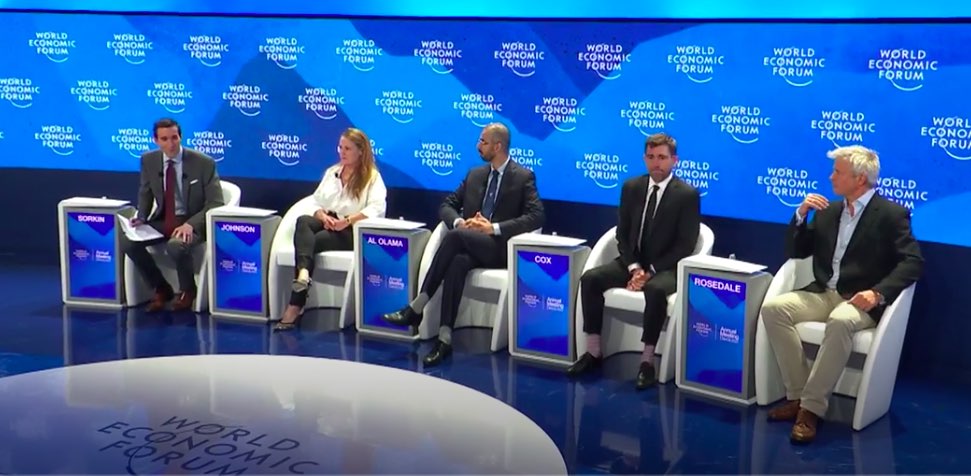Absolutely fascinating panel discussion held at this year’s World Economic Forum in Davos Switzerland. A group of heavy hitter experts from companies that are actually building the metaverse joined Andrew Ross Sorkin onstage at #WEF22. It’s not everyday you see a co-anchor of Squawk Box and financial columnist at the New York Times have an in-depth discussion about what the future of Web3 looks like.
We’ll review the highlights of the discussion and report on some great quotes from the panelists: Peggy Johnson from Magic Leap, Omar Sultan Al Olama from the United Arab Emirates, Chris Cox from Facebook (now Meta), and Philip Rosedale from Second Life.
Meta’s Chief Product Officer, Chris Cox, started the session off with a great description of how Meta thinks of the metaverse it is building:
“I at least think about it as the next chapter, the next evolution of the internet, except where it gets less flat. If you think about the primary metaphors for the internet to date have been about web pages and literally two-dimensional objects that we peer at through screens. One of the most trends in computing is that the computer moves from the basement to the desktop to our pocket, as has happened over the last 50 years. And we believe, I think we as an industry believe that it ultimately gets closer to the senses, to the eyes, to the hands, to speech. So keyboard input goes away and peering at everything through a screen in our pockets eventually goes away. The metaverse is a way of describing a transition to a three-dimensional environment.”
Chris Cox – Chief Product Officer, Meta
Before we get to the other highlights, watch Chris give his description from 02:09 – 02:55 in this video:
Chris also discusses how hyperlinks were the foundational primitives of the internet, and forecasts that the primitives of the metaverse will be what he calls “complex hyperlinks” and functionally provide the links to navigate directly from one Web3 experience to another.
“If you think about the hyperlink just as a really brutalist simple metaphor for the structure of portability that made the original internet work. I click on a blue word and you will go from one service to another service. That was the structure that enabled Google, that enabled sort of the first generation web services to build utility because we had some agreement on what the primitives were of the internet. The primitives in the metaverse are going to be more complicated because travel. The equivalent of the hyperlink in the metaverse is I can go from Second Life into a work meeting and I can go from there into an educational experience where I”m visiting the colosseum, and then I can turn it all off and be in an A/R (augmented reality) experience where I can just pull my messages up or I can translate the person who is speaking a different language next to me. These are the kinds of things I think we’re all envisioning.”
Chris Cox – Chief Product Officer, Meta
The event is wrapped up with a discussion over rating content in the metaverse and some debate about what sort of revenue model will succeed.
